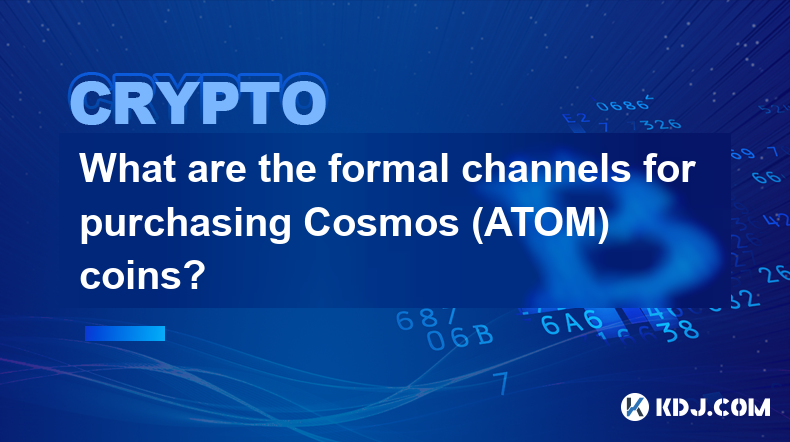-
 Bitcoin
Bitcoin $99,560.3949
2.67% -
 Ethereum
Ethereum $1,951.2300
6.28% -
 Tether USDt
Tether USDt $1.0001
0.01% -
 XRP
XRP $2.2064
3.09% -
 BNB
BNB $613.8040
1.33% -
 Solana
Solana $154.0293
4.38% -
 USDC
USDC $0.9999
-0.01% -
 Dogecoin
Dogecoin $0.1830
5.58% -
 Cardano
Cardano $0.7176
5.29% -
 TRON
TRON $0.2508
1.79% -
 Sui
Sui $3.7465
10.63% -
 Chainlink
Chainlink $14.8531
7.06% -
 Avalanche
Avalanche $20.9166
5.91% -
 Stellar
Stellar $0.2736
4.31% -
 Bitcoin Cash
Bitcoin Cash $414.7250
13.08% -
 UNUS SED LEO
UNUS SED LEO $8.8023
1.31% -
 Shiba Inu
Shiba Inu $0.0...01340
4.45% -
 Hedera
Hedera $0.1858
4.96% -
 Toncoin
Toncoin $3.1179
3.29% -
 Hyperliquid
Hyperliquid $21.6150
1.58% -
 Litecoin
Litecoin $92.0306
0.75% -
 Polkadot
Polkadot $4.2501
7.01% -
 Monero
Monero $298.2987
4.40% -
 Dai
Dai $1.0002
-0.02% -
 Bitget Token
Bitget Token $4.3415
0.41% -
 Ethena USDe
Ethena USDe $1.0004
0.00% -
 Pi
Pi $0.6197
6.41% -
 Pepe
Pepe $0.0...09091
11.37% -
 Bittensor
Bittensor $400.4217
9.80% -
 Uniswap
Uniswap $5.2244
7.18%
What are the formal channels for purchasing Cosmos (ATOM) coins?
The formal channels for purchasing Cosmos (ATOM) coins include cryptocurrency exchanges, over-the-counter (OTC) trading, and peer-to-peer (P2P) trading.
Dec 08, 2024 at 04:05 pm

What are the Formal Channels for Purchasing Cosmos (ATOM) Coins?
Cosmos is a decentralized network of blockchains that allows for the seamless transfer of assets and data between different blockchains. The native token of the Cosmos network is ATOM, which is used for staking, governance, and transaction fees. There are several formal channels through which you can purchase ATOM coins.
1. Cryptocurrency Exchanges
One of the most common ways to purchase ATOM coins is through cryptocurrency exchanges. These platforms allow you to buy and sell cryptocurrencies using fiat currencies (e.g., USD, EUR) or other cryptocurrencies. Some of the most popular cryptocurrency exchanges that support ATOM trading include:
- Binance
- Coinbase
- Kraken
- Gemini
- KuCoin
To purchase ATOM coins on a cryptocurrency exchange, you will need to create an account and verify your identity. Once your account is verified, you can deposit funds into your account using a bank transfer, credit/debit card, or another cryptocurrency. You can then use these funds to purchase ATOM coins.
2. Over-the-Counter (OTC) Trading
Over-the-counter (OTC) trading is another option for purchasing ATOM coins. OTC trading involves buying or selling large amounts of cryptocurrency directly with another individual or institution. This method is often used by institutional investors who want to avoid the volatility of cryptocurrency exchanges.
To find OTC trading partners, you can use platforms like OTC desks or brokers. Once you have found a trading partner, you will need to agree on the price and terms of the trade. OTC trades are typically settled in fiat currencies (e.g., USD, EUR).
3. Peer-to-Peer (P2P) Trading
Peer-to-peer (P2P) trading is a decentralized way to buy and sell ATOM coins. P2P platforms allow you to connect directly with other individuals who are interested in buying or selling cryptocurrencies. This method is often used to avoid the fees associated with cryptocurrency exchanges.
To find P2P trading partners, you can use platforms like LocalBitcoins or Paxful. Once you have found a trading partner, you will need to agree on the price and terms of the trade. P2P trades can be settled in fiat currencies (e.g., USD, EUR) or cryptocurrencies.
Disclaimer:info@kdj.com
The information provided is not trading advice. kdj.com does not assume any responsibility for any investments made based on the information provided in this article. Cryptocurrencies are highly volatile and it is highly recommended that you invest with caution after thorough research!
If you believe that the content used on this website infringes your copyright, please contact us immediately (info@kdj.com) and we will delete it promptly.
- XRP Just Did the Most Textbook Move — and It's Flying Toward This Resistance
- 2025-05-08 20:15:12
- LockBit ransomware gang's dark web affiliate panel was breached, leaking nearly 60,000 Bitcoin addresses
- 2025-05-08 20:15:12
- BNB Could Rise More Than 360% to $2775 by 2028, According to Standard Chartered
- 2025-05-08 20:10:12
- Cardano’s $619M Scandal Centers on Allegations About Unclaimed ADA Moved Without Permission by Hoskinson
- 2025-05-08 20:10:12
- Bitcoin (BTC) Has Recovered Rather Sharply
- 2025-05-08 20:05:12
- PEPE Coin Shows Strong Recovery Signals as Whale Accumulation and Technical Patterns Point to a Potential Breakout
- 2025-05-08 20:05:12
Related knowledge

Is Ethereum smart contract call fee high? How to optimize costs?
May 08,2025 at 09:35am
Is Ethereum Smart Contract Call Fee High? How to Optimize Costs? The world of Ethereum smart contracts has revolutionized the way we think about decentralized applications and blockchain technology. However, one of the most frequently discussed topics within this realm is the cost associated with executing smart contract calls. In this article, we will ...

Is Ethereum Layer2 fee low? How to use it cheaper?
May 08,2025 at 03:56am
The question of whether Ethereum Layer 2 solutions offer lower fees and how to use them more economically is a topic of great interest within the cryptocurrency community. Ethereum's Layer 2 solutions have been developed to address the high transaction fees and scalability issues associated with the main Ethereum network. In this article, we will delve ...

How to calculate Ethereum network fee? How to reduce transaction costs?
May 08,2025 at 02:15am
Understanding and managing Ethereum network fees is crucial for anyone involved in transactions on the Ethereum blockchain. The network fee, also known as gas fee, is the amount of Ether (ETH) required to successfully conduct a transaction or execute a smart contract on the Ethereum network. Calculating these fees and finding ways to reduce them can sig...

What is Ethereum Gas Fee? How to optimize Gas Fee to save costs?
May 08,2025 at 03:43am
Ethereum gas fees are a crucial aspect of interacting with the Ethereum blockchain. Understanding and optimizing these fees can significantly impact the cost-effectiveness of transactions and smart contract interactions. In this article, we will delve into what Ethereum gas fees are, how they are calculated, and provide detailed strategies for optimizin...

How to perform MOVE cross-chain transfer? What to do if the gas fee is too high?
May 07,2025 at 08:03pm
Introduction to MOVE Cross-Chain TransferCross-chain transfers have become an essential part of the cryptocurrency ecosystem, allowing users to move assets between different blockchain networks. One of the popular protocols for achieving this is the MOVE cross-chain transfer. This article will guide you through the process of performing a MOVE cross-cha...

How is the DYDX liquidation price calculated? How is the forced liquidation mechanism?
May 08,2025 at 06:49am
The DYDX liquidation price and the forced liquidation mechanism are crucial aspects of trading on the dYdX platform, a decentralized exchange that allows users to trade perpetual contracts. Understanding these concepts is essential for managing risk and maximizing potential returns. In this article, we will delve into the details of how the DYDX liquida...

Is Ethereum smart contract call fee high? How to optimize costs?
May 08,2025 at 09:35am
Is Ethereum Smart Contract Call Fee High? How to Optimize Costs? The world of Ethereum smart contracts has revolutionized the way we think about decentralized applications and blockchain technology. However, one of the most frequently discussed topics within this realm is the cost associated with executing smart contract calls. In this article, we will ...

Is Ethereum Layer2 fee low? How to use it cheaper?
May 08,2025 at 03:56am
The question of whether Ethereum Layer 2 solutions offer lower fees and how to use them more economically is a topic of great interest within the cryptocurrency community. Ethereum's Layer 2 solutions have been developed to address the high transaction fees and scalability issues associated with the main Ethereum network. In this article, we will delve ...

How to calculate Ethereum network fee? How to reduce transaction costs?
May 08,2025 at 02:15am
Understanding and managing Ethereum network fees is crucial for anyone involved in transactions on the Ethereum blockchain. The network fee, also known as gas fee, is the amount of Ether (ETH) required to successfully conduct a transaction or execute a smart contract on the Ethereum network. Calculating these fees and finding ways to reduce them can sig...

What is Ethereum Gas Fee? How to optimize Gas Fee to save costs?
May 08,2025 at 03:43am
Ethereum gas fees are a crucial aspect of interacting with the Ethereum blockchain. Understanding and optimizing these fees can significantly impact the cost-effectiveness of transactions and smart contract interactions. In this article, we will delve into what Ethereum gas fees are, how they are calculated, and provide detailed strategies for optimizin...

How to perform MOVE cross-chain transfer? What to do if the gas fee is too high?
May 07,2025 at 08:03pm
Introduction to MOVE Cross-Chain TransferCross-chain transfers have become an essential part of the cryptocurrency ecosystem, allowing users to move assets between different blockchain networks. One of the popular protocols for achieving this is the MOVE cross-chain transfer. This article will guide you through the process of performing a MOVE cross-cha...

How is the DYDX liquidation price calculated? How is the forced liquidation mechanism?
May 08,2025 at 06:49am
The DYDX liquidation price and the forced liquidation mechanism are crucial aspects of trading on the dYdX platform, a decentralized exchange that allows users to trade perpetual contracts. Understanding these concepts is essential for managing risk and maximizing potential returns. In this article, we will delve into the details of how the DYDX liquida...
See all articles
























![[2025.05.08] The two routes of Bitcoin continue to be observed, and gold is still bullish. [2025.05.08] The two routes of Bitcoin continue to be observed, and gold is still bullish.](/uploads/2025/05/08/cryptocurrencies-news/videos/routes-bitcoin-continue-observed-gold-bullish/image_500_375.webp)



























































